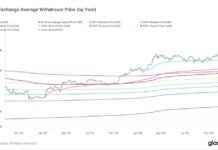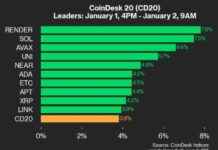AgriDex Secures $4 Million in Strategic Round on Solana-based RWA Platform
AgriDex, a Solana-based tokenization platform for agriculture markets, has successfully raised $4 million in a recent funding round that garnered significant interest from various venture capital firms and angel investors. The funding round was led by venture capital platform Portal Ventures, marking a significant milestone for the Solana (SOL) real-world assets marketplace.
Investors Show Confidence in AgriDex
AgriDex’s latest funding round saw participation from prominent investors, including Endeavour Ventures, HU Investments, FS Ventures, Hawkwood Capital, and Sycamore Gap Management. Moreover, the London-based crypto startup attracted attention from notable angel investors like Tobechi Bolanle Taiwo from Palantir and Anna Yuan from Perena, further solidifying investor confidence in the platform.
With this recent injection of funds, AgriDex has now raised over $9 million from investors, building on the success of a $5 million pre-seed round earlier in the year. The platform’s team expressed their gratitude for the support, highlighting their commitment to revolutionizing the agriculture industry through blockchain technology.
Expansion Plans and Collaborations
AgriDex intends to leverage the new funding to onboard major agricultural institutions, such as Imperial Shipping Group, Parrogate Group, and Future Farm. Additionally, the platform aims to strengthen its partnerships with Circle, Bridge, and Plume Network to facilitate tokenization and trade finance lending within the agriculture sector.
Solana’s Role in Agricultural Tokenization
The use of Solana’s blockchain technology has been instrumental in AgriDex’s success, allowing for the seamless tokenization of agricultural commodities. By leveraging Solana’s blockchain, vendors and buyers within the agriculture industry can enjoy benefits such as instant settlements, minimal transaction fees, and secure records backed by non-fungible tokens.
AgriDex has already brought a variety of agricultural products onto the blockchain, including wine, coffee, and olive oil. Through Solana’s technology, the platform has enhanced critical supply chain management processes, ensuring compliance, quality assurance, and streamlined tracking mechanisms for agricultural products.
AGRI Token Performance
The native token of AgriDex, AGRI, has experienced significant growth, reaching an all-time high of $0.1201 on December 12. This surge represents a remarkable 79% increase from its low point of $0.06265 on December 6, showcasing the growing interest and confidence in AgriDex and its potential within the agriculture industry.
In conclusion, AgriDex’s recent funding success and strategic partnerships underscore its position as a key player in the tokenization of agricultural markets. The platform’s innovative use of blockchain technology, coupled with strong investor support, paves the way for a transformative future in the agriculture sector.


















